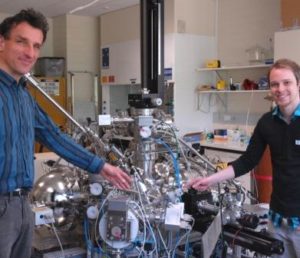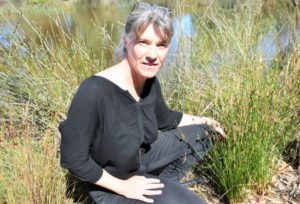
Physics and groundwater experts from Flinders University will play key roles in the new multinational Global Hydrogen Production Technologies (HyPT) Centre.
The centre will focus on developing large-scale net-zero hydrogen production and is part of the new $118 million National Science Foundation Global Centres in Climate Change and Clean Energy (NSF Global Centres) program funded by the US, Canada, Australia and the UK.
The University of Adelaide, Flinders University and Curtin University join partners from the US, Canada, the UK, Egypt and Germany in the HyPT Centre project.
HyPT research groups will focus on renewable energy-integrated water electrolysis, methane pyrolysis with valuable solid carbon co-products and solar-driven water splitting.

“We will work on developing photocatalysts in the visible part of the solar spectrum and management of water resources needed for electro-catalytical and photo-catalytical water splitting,” says Professor Gunther Andersson, from the College of Science and Engineering,
“Work will kick off at Flinders early next year and involves two PhD positions and a postdoc position.”
Professor of Physics Andersson will work with Flinders hydrogeologists Strategic Professor Okke Batelaan and Associate Professor Ilka Wallis, who will focus on groundwater resources modelling and hydrology.
The HyPT Centre will establish an international partnership of 34 experts from 19 institutions in six countries to formulate a pathway to low-cost large-scale net-zero hydrogen production from a platform of complementary technologies.

Professor Gunther Andersson’s long-running collaboration with South Australian lead HyPT Centre researcher Professor Greg Metha, from the University of Adelaide, has supported the launch of Sparc Technologies’ hydrogen project in Australia.
The second NSF Global Centres initiative is the Electric Power Innovation for a Carbon-free Society (EPICS) group, which will involve CSIRO, University of Melbourne, Monash and Australian Energy Market Operator (AEMO) with US and UK partners.

South Australia’s State Government is drawing up bold hydrogen power plans for future renewable energy production.
The global electric power sector is responsible for 42 per cent of global carbon emissions, and the key to reduce this is to find solutions to the challenges of building renewable energy power grids at large scale.
Australia is likely be the first major economy in the world to close in on a 100 per cent renewables grid based mostly around wind and solar.

